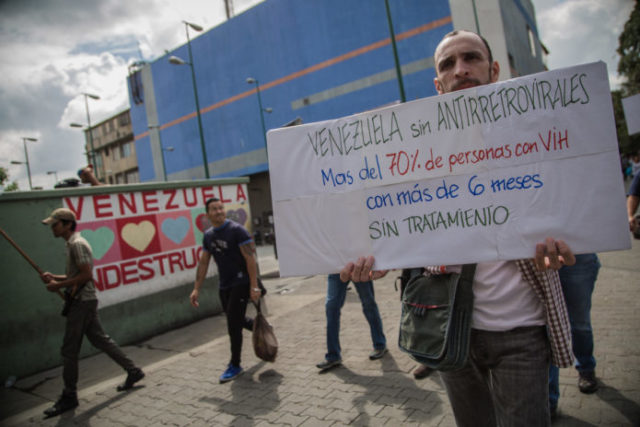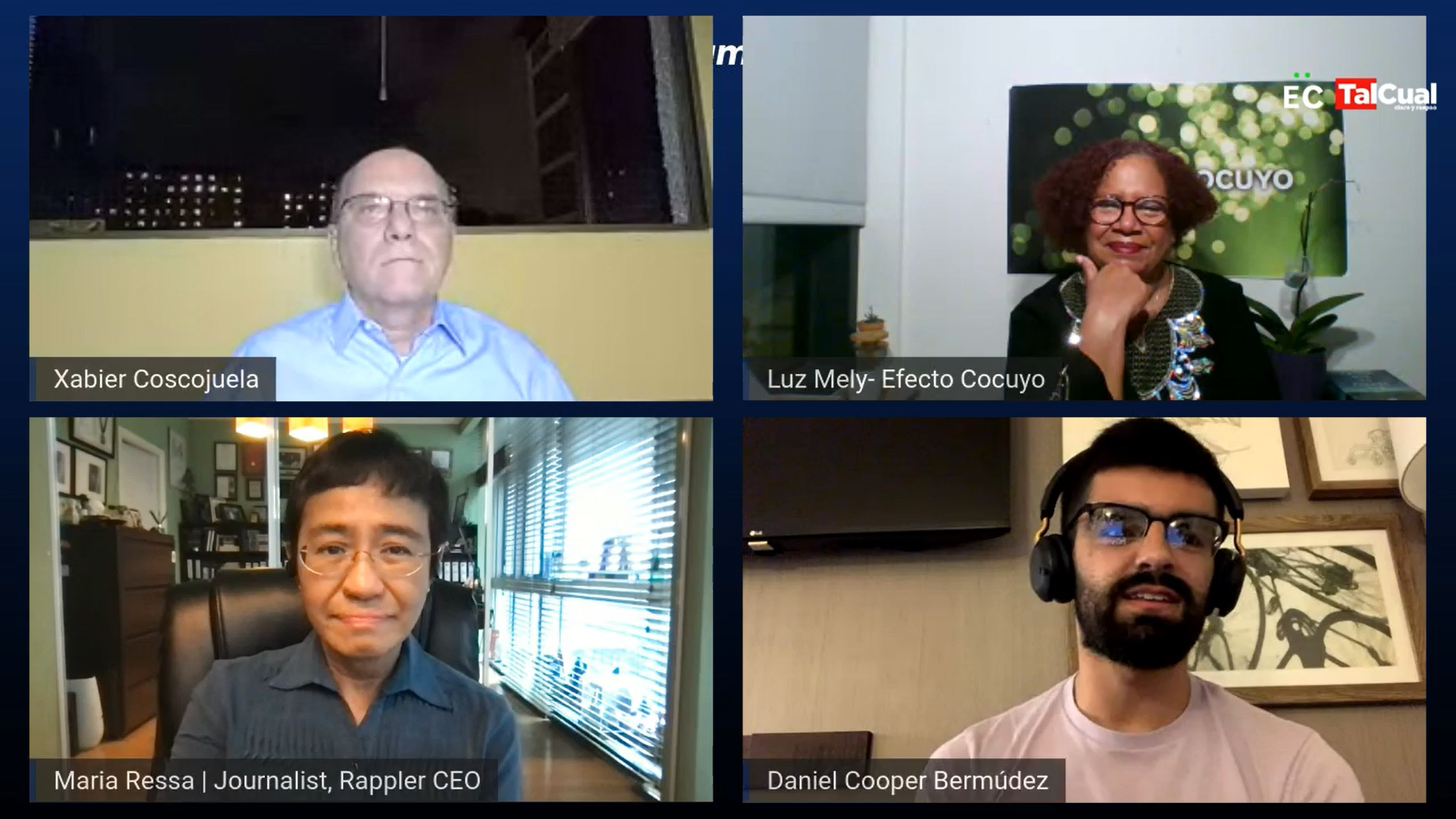As if the decision of appointing the members of the National Electoral Council (CNE) for the fifth time in two decades was not enough to cast doubt on the transparency of the upcoming legislative elections, the Supreme Court of Justice (TSJ) decided to give more reasons to suspecting the democratic quality of the process by placing an administrative intervention on three most important opposition parties in the country.
Through rulings 71, 72 (June 15 and 16), and 77 (July 7) the Constitutional Chamber unrecognized the directive boards of Acción Democrática (AD), Primero Justicia (PJ) and Voluntad Popular (VP), and decided to replace them by ad hoc boards chaired by leaders close to the government of Nicolás Maduro.
The decisions to temporarily suspend and replace the current directives were based on the alleged violations of political rights that the leaders of these organizations committed against some of their members.
The Chamber determined that the ad hoc boards were the only organs entitled to nominate the candidates from those political parties for the elections called by the illegitimate CNE; therefore, it ordered the electoral council to abstain from accepting any application not endorsed by the court. Likewise, it declared that the ad hoc boards of directors are authorized to use the logo, symbols, emblems, and colors of Acción Democrática, Primero Justicia and Voluntad Popular and ordered to suspend the effects of any disciplinary measure (expulsions or exclusions) that the former party directors -now under suspension – had carried out against any member, especially towards the petitioners of the protection measures that gave rise to the three rulings of the TSJ.
According to Acceso a la Justicia, rulings 71, 72, and 77 are evidence of the lack of independence within the judicial system, especially when it comes to guaranteeing the partisan interests of the Maduro regime in the face of upcoming parliamentary elections. The constitutional judge decides whatever is required to protect the interests of the ruling Chavismo, and for this reason, the decisions of the TSJ are increasingly irrational and absurd.
Proof of this is ruling 71, which solved the lawsuit filed against the Acción Democrática board, under the administration of Henry Ramos Allup, Isabel Carmona and Bernabé Gutiérrez. The Chamber, without any type of argumentation or legal reasoning, decided to appoint one of the defendants (Gutiérrez) to head the ad hoc board of the political organization; in fact, Gutiérrez had shown willingness to participate in any electoral process, regardless of conditions.
Something similar happened with ruling 72, where José Dionisio Brito, one of the two applicants for constitutional protection and who had been expelled from Primero Justicia at the end of 2019 for being involved in the plot called “Operation Alacrán” and in other acts of corruption, was unilaterally appointed by the Chamber to preside over the ad hoc board of the party.
Brito was one of the opposition deputies supporting the challenged Luis Parra in his attempt to establish himself as president of the National Assembly, with the support of the ruling party and the TSJ itself, most recently through ruling 65 of the Constitutional Chamber on May 26, 2020.
Finally, Voluntad Popular saw the same fate: through ruling 77, the TSJ appointed José Gregorio Noriega Figueroa as president, Guillermo Antonio Luces Osorio as secretary-general and Lucila Angela Pacheco Bravo as organizing secretary. The first of them had been expelled from Voluntad Popular at the end of 2019 for being involved in “Operación Alacrán” and other acts of corruption.
To Acceso a la Justicia, the rulings of the TSJ against Acción Democrática, Primero Justicia, and Voluntad Popular violate the democratic process within the political parties, expression of the right to political association enshrined in article 67 of the Constitution, which provides for the governing bodies of associations for political purposes to be selected “in internal elections with the participation of their members.”
Adding to the list
The intervention of political parties by the TSJ is not new in Venezuela, especially near electoral contests, serving as a strategy for Chavismo to win elections.
The practice of meddling in the internal affairs of political organizations dates back to 2000 when both the CNE and the highest court began the intervention of Acción Democrática. At that time, the electoral body settled the dispute between “Los Chorros” (Timoteo Zambrano and Williams Dávila) and “La Florida” (Henry Ramos Allup and Rafael Marín Jaen) factions with resolution n. º 001206-2559 on December 6, 2000, establishing that the highest legitimate authorities of the political organization were Ramos Allup as president and Marín Jaen as secretary-general.
The CNE’s decision was later ratified by the TSJ through its Electoral Chamber through ruling No. 28 on March 20, 2001, where the directive recognized by the CNE was declared valid.
This interference was repeated in 2012 when, once again, the Electoral Chamber in ruling No. 87, decided to favor the prochavista wing of the Patria Para Todos (PPT) party headed by Rafael Uzcátegui, awarding him the organization’s general secretariat while dismissing José Simón Calzadilla.
Another episode affected the organization Movimiento por la Democracia Social (Podemos) when the Constitutional Chamber in ruling No. 793 dated June 7, 2012, stripped Ismael García of the movement’s chairmanship and replaced him with the former governor of Aragua, Didalco Bolívar. This occurred after Garcia’s breakup with late Hugo Chávez.
In 2015, Movimiento Electoral del Pueblo (MEP), Bandera Roja, MIN-Unidad and COPEI suffered the same fate, after the TSJ decreed the suspension of their directives and, in turn, ordered their replacement by boards chaired by leaders with political links to Chavismo, significantly altering the democratic essence enjoyed by the legitimate authorities of those organizations.
Checkmating the opposition parties
After the defeat that Chavismo suffered in the 2015 parliamentary elections, the threats against opposition parties began to escalate. Thus, in 2016 the Constitutional Chamber issued its first ruling of the year, in which it established, after interpreting article 67 of the Constitution and articles 10, 16, and 25 of the Law on Political Parties, that the organizations that had obtained less than 1% of the votes in the 2015 election in less than twelve different states had to renew their member registry.
The main objective of this decision was to eliminate the political organizations that opted to use the electoral card of the coalition Mesa de la Unidad Democrática (MUD) instead of their own. Subsequently, the MUD was annulled in early 2018 through a stratagem by the TSJ in ruling No. 53 to give Maduro an advantage in the presidential elections, which were to be held in the early days of December 2018 but were illegally moved to May 20.
This severe attack against opposition parties became evident when only 17 out of 67 political parties that existed in December 2015 remained active by April 2018, including 12 pro-government organizations and 5 from the opposition.
It should also be mentioned that in the meantime the fraudulent National Constituent Assembly (ANC), installed in August 2017, and the CNE cooperated in the elimination of political parties in Venezuela after they issued a series of unconstitutional decisions that violated fundamental rights.
How does this affect Venezuelan people?
To Acceso a la Justicia, the episodes of interventionism against Acción Democrática, Primero Justicia and Voluntad Popular by the TSJ, together with the appointment of an electoral council without consensus, provide a favorable environment for a repeat of the 2018 presidential elections experience; in other words, elections that do not reflect the national sentiment, since it is evident that the circumstances described above do not grant any guarantee of minimum conditions, much less hope to rescue democracy.
The recent cases ruled by the TSJ show the annihilation of political pluralism by the Maduro regime and do not favor the recovery of alternation, respect for the Constitution, and the restoration of Venezuelan institutions.
Translated by: José Rafael Medina.




